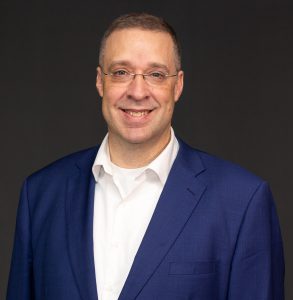
 Question:
Question:
You’ve mentioned in past columns that none of us are supposed to be merely spectators at Mass, but instead we’re all called to actively participate in the Mass. Can you explain this more?
Answer:
I’d be happy to! This idea was one of the central points that the Second Vatican Council made about the Mass, and it’s definitely worth addressing in greater detail. I’d like to start by giving a bit of that history from Vatican II.
For many Catholics, the primary effects of the Second Vatican Council held in the early 1960s were in regard to the Mass, because those effects were the most visible for the typical Catholic. The Council had much more to say to Catholics and to the world than just its teachings on the Mass, but those teachings and how they were implemented after the Council were the most obvious to many.
One of the most central concerns of the Council regarding the Mass related to our participation in it. Vatican II emphasized what the Church has always taught and what I mentioned in that previous column: we are all called to be active participants in the Mass.
Here’s the key passage from one of the most important documents of the Council, the “Constitution on the Sacred Liturgy”: “Mother Church earnestly desires that all the faithful should be led to that full, conscious, and active participation in liturgical celebrations which is demanded by the very nature of the liturgy. Such participation by the Christian people as ‘a chosen race, a royal priesthood, a holy nation, a redeemed people’ (1 Pet. 2:9; cf. 2:4-5), is their right and duty by reason of their baptism” (paragraph 14, emphasis added).
This means when we attend Mass, none of us are meant to be mere spectators … none of us. As Vatican II teaches, by virtue of our baptism we each participate in the “royal priesthood” of the Church. No, we are not priests in the ordained sense, but we are priests in the baptismal sense, and that empowers us to actively participate in the Mass. To explain this further I’d like to return to the analogy that I used last fall: football.
If it’s February, it’s Super Bowl time. Think about a professional football game. If the Mass were a football game, who would the congregation be? Many of us might be inclined to think the people are like the fans in the stadium, but that’s not the case. In fact, we are on the field! And that’s not just because we can be lectors, ushers or sacristans. Everyone who comes to Mass is meant to be “on the field” or “in the game.”
It’s true that, just like a football team, there are different roles and responsibilities for those on the field, but nonetheless, everyone on the field is actively participating in the game.
What the bishops of the Church at Vatican II desired—and what the bishops of the Church today continue to desire—is that everyone who comes to Mass be engaged in both body and soul with the prayers of the Mass. Active participation means, in a real sense, “active praying.” We are all called to attentively participate in the prayers of the Mass, whether it be the responses we make or the prayers the priest is saying, which we silently make our own.
Even if—or perhaps, especially if—we have no liturgical ministry to participate in during Mass, we are called to unite ourselves to what is happening. Why? Because it is only by actively, attentively praying the Mass that we are able to bear the fruit of the graces that we receive at Mass.
In the Mass, God pours his love, his life, his grace out upon us, to the point that we really and truly receive him in Holy Communion. Grace is given to us in the Mass. However, that grace will bear fruit in us to a greater or lesser extent, an extent that depends upon the degree to which we pray the Mass. The more we actively pray the Mass, the more the grace God gives us will bear fruit in our lives.
Again, this is a call made to everyone at Mass, not just the lectors, servers, ushers, etc. This is where the language has often been misunderstood: to be an active participant doesn’t mean to be playing a ministerial role at Mass, as if those in the pews are merely passive participants or spectators. In fact, this is confirmed when you look at the official Latin phrase used at Vatican II: it’s “participatio actuoso,” which is best translated “actual participation.” So, everyone is called to active or actual participation in the Mass, because active or actual participation means, as noted above, actively or actually praying the Mass.

So, as we continue in this new year, let us ask the Lord to give us the grace to renew our participation in the Mass and seek to continually deepen our “active praying” of the Holy Eucharist.
Be sure to check out the additional resources at sfcatholic.org/answer. If you have a question you need an answer to, email rkranz@sfcatholic.org.
Chris Burgwald holds a doctorate in theology and is the director of discipleship formation for the Diocese of Sioux Falls.


